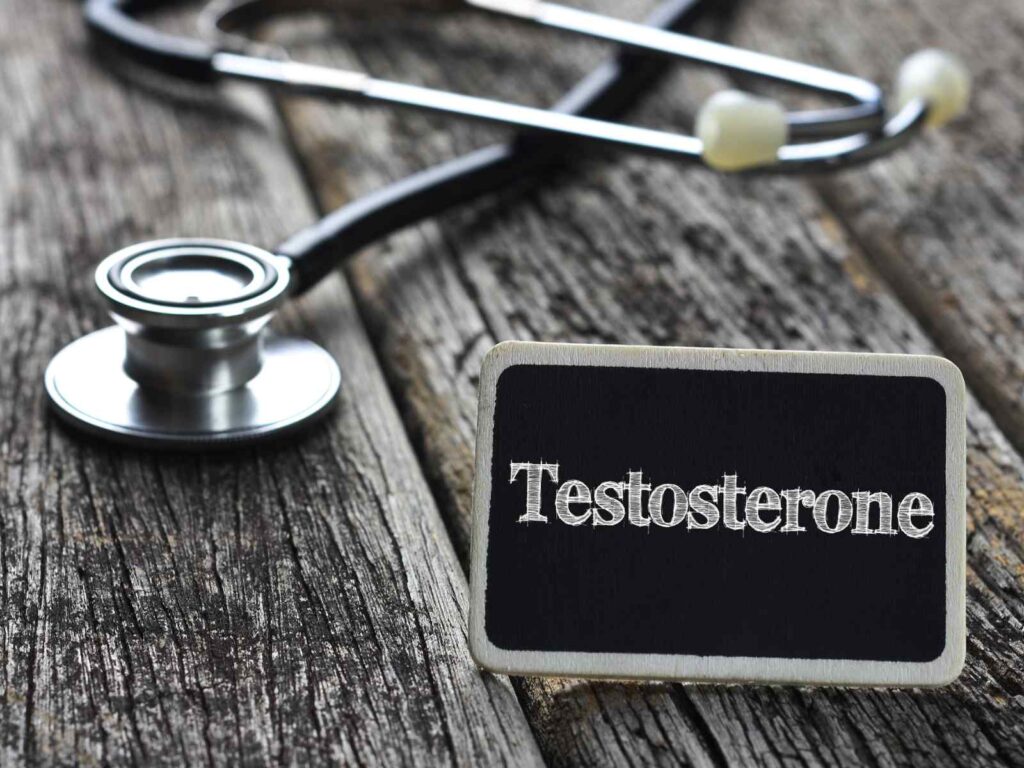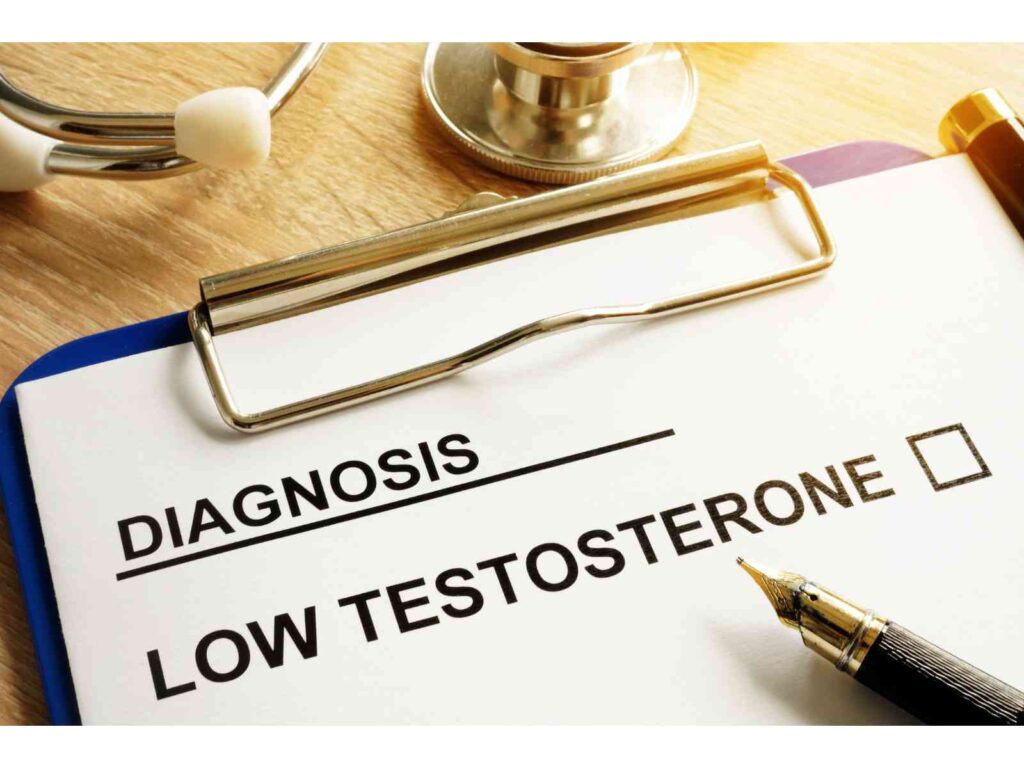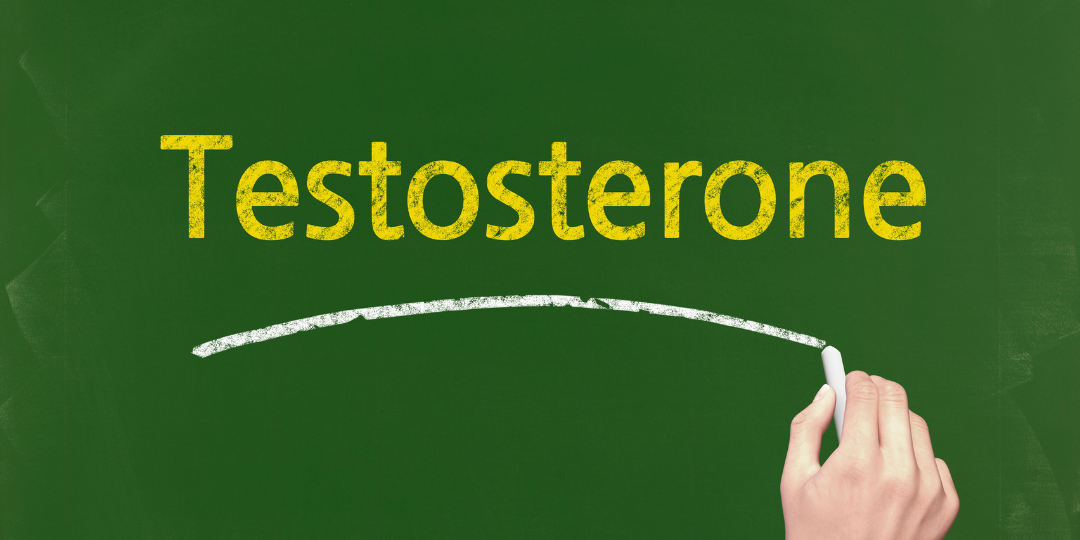
Introduction
Did you know that frequent marijuana use can lead to a decrease in testosterone levels by up to 65%? While marijuana has gained widespread social and even legal acceptance, its impact on health parameters like testosterone is often overlooked. In this article, we’ll delve into 5 shocking reasons why men should be especially concerned about how marijuana affects their testosterone levels.
This isn’t just about recreational or habitual use; even medical marijuana can have hormonal consequences you should be aware of. From fertility concerns to long-term health risks, understanding the relationship between marijuana and testosterone levels is more critical than ever. By shedding light on this topic, we aim to equip you with the information you need to make informed decisions about your health.
Table of Contents
Decreased Testosterone Levels
One of the most alarming effects of marijuana on men’s health is its impact on testosterone production. While many are aware of the immediate effects of marijuana, such as relaxation or euphoria, few consider the hormonal imbalances it can create, particularly the reduction in testosterone levels.

Understanding the science behind decreased testosterone due to marijuana use is essential for grasping the seriousness of this issue. Cannabinoids, the active compounds found in marijuana, interact with the endocannabinoid system in the body. This system plays a role in regulating various physiological processes, including hormone production. Studies have shown that cannabinoids can inhibit the release of gonadotropin-releasing hormone (GnRH) from the brain. This hormone is a key regulator of testosterone production, and its inhibition can lead to a subsequent decrease in testosterone levels.
Health Implications:
The repercussions of decreased testosterone are far-reaching and can affect various aspects of men’s health. Here are some of the potential health issues:
- Low Energy and Fatigue: Reduced testosterone often correlates with a decrease in energy levels, making daily activities more strenuous and affecting your overall quality of life.
- Reduced Muscle Mass and Strength: Testosterone plays a crucial role in muscle development and maintenance. Lower levels can lead to muscle wastage, decreased strength, and longer recovery times after workouts.
- Mood Fluctuations: Testosterone has been shown to affect mood and mental well-being. A reduction in this hormone can lead to mood swings, irritability, and even depression in severe cases.
- Reduced Libido: A well-known effect of low testosterone is a decrease in sexual drive, which can strain relationships and affect mental health.
By becoming aware of these health implications, you can better understand why maintaining hormonal balance, particularly testosterone levels, should be a priority for men who use marijuana.
Negative Impact on Fertility
When it comes to men’s health, the conversation often extends beyond testosterone levels to another critical aspect—fertility. The relationship between marijuana, testosterone, and fertility is a complex but crucial one that deserves attention. Reduced testosterone levels due to marijuana use have significant implications for a man’s fertility and reproductive health.
A growing body of scientific research points to the link between marijuana use and reduced fertility. Studies indicate that the active compounds in marijuana, namely cannabinoids, can disrupt the endocrine system, affecting hormone levels including testosterone. One study found that marijuana users had notably lower sperm counts compared to non-users. Additionally, research has shown that marijuana use can result in poor sperm motility, making it more difficult for the sperm to reach and fertilize an egg.
Long-Term Consequences:
The long-term implications for men trying to conceive can be alarming. Reduced sperm count and poor sperm motility can significantly decrease the chances of successful fertilization. This could lead to prolonged periods of unsuccessful attempts at conception, emotional distress, and relationship strain. Moreover, chronic marijuana use might make standard fertility treatments less effective, complicating matters further.
In light of these findings, men who are planning to become fathers should be particularly cautious about marijuana use. Balancing your hormonal health is not just about maintaining testosterone levels but also preserving your reproductive capabilities.
Altered Sexual Function
While marijuana is often celebrated for its relaxing effects, it’s essential to consider how it could affect other aspects of life, such as sexual performance. A growing body of research suggests that marijuana use may lead to altered sexual function, partly due to its impact on testosterone levels.
How It Happens:
So, how exactly does marijuana affect sexual function? The relationship primarily hinges on testosterone, a hormone responsible for many aspects of male sexuality, including libido and erectile function. Reduced testosterone levels, often seen in regular marijuana users, can lead to a variety of sexual problems. For instance, low testosterone is closely associated with erectile dysfunction. Moreover, a decreased libido can result from this hormonal imbalance, making sexual encounters less enjoyable or even stressful.
Real-life Cases:
The evidence is not merely academic; real-life cases and patient anecdotes reinforce these findings. One study revealed that men who regularly used marijuana reported higher instances of erectile dysfunction compared to those who didn’t use the substance. Another study highlighted that men who used marijuana daily had significantly reduced libido levels compared to occasional or non-users. These cases serve as cautionary tales, demonstrating the real-world impact of marijuana use on sexual function.
By taking into account both scientific research and real-world examples, it becomes abundantly clear that the implications of marijuana use extend beyond mere recreation. When it comes to testosterone levels and sexual performance, it’s a topic that men need to take seriously.
Emotional and Psychological Effects
While much attention is focused on the physical repercussions of low testosterone levels, such as decreased muscle mass and impaired sexual function, the emotional and psychological effects are often overlooked. The mood-altering impact of reduced testosterone levels should not be underestimated, particularly for men who regularly use marijuana and may be placing themselves at greater risk.
The Science:
Several scientific studies have highlighted the correlation between low testosterone levels and various emotional and psychological changes. Research has shown that men with low testosterone are more prone to feelings of depression, anxiety, and irritability. Another study found that reduced testosterone levels were associated with cognitive decline, affecting focus and memory. The mechanism behind this involves the interaction between testosterone and neurotransmitters like serotonin, which play a role in regulating mood.
Impact on Quality of Life:
These emotional and psychological changes can have far-reaching implications for your quality of life. Mood swings and irritability can strain personal relationships, while decreased focus and mental sharpness can impact work performance. Furthermore, symptoms like depression and anxiety can compromise your overall well-being, making even simple daily tasks feel overwhelmingly difficult.
The intersection between marijuana use, reduced testosterone, and emotional well-being is a complex but vital one. Understanding this relationship is crucial, especially for men who may be unknowingly sabotaging not only their physical health but their emotional stability as well.
Long-Term Health Risks
The consequences of low testosterone levels due to marijuana use aren’t just immediate; they extend far into the future, posing long-term health risks that are often not immediately apparent. While many men focus on the here-and-now effects of marijuana, it’s crucial to be aware of the more enduring implications on your health.
Risk Factors:
Low testosterone levels are associated with a range of long-term health issues, some of which can be severe:
- Cardiovascular Disease: Lower testosterone has been linked to unhealthy lipid profiles and higher cardiovascular risk factors, making heart-related issues more likely as you age.
- Osteoporosis: Testosterone plays a role in bone density. Lower levels can lead to weaker bones, increasing the risk of fractures and osteoporosis later in life.
- Metabolic Syndrome: Testosterone affects how your body regulates insulin, fat, and glucose. Low levels can contribute to weight gain, diabetes, and other metabolic issues.
- Cognitive Decline: As mentioned earlier, low testosterone can affect your mental capabilities, potentially leading to cognitive decline and increased risk of conditions like Alzheimer’s disease.
Prevention and Treatment:
Thankfully, awareness and early intervention can mitigate some of these long-term risks. Regular monitoring of testosterone levels can serve as a preventive measure. If you are found to have low levels, treatments such as testosterone replacement therapy can be considered. Additionally, lifestyle changes like increased exercise, improved diet, and reduced marijuana use can positively affect testosterone levels and, by extension, long-term health outcomes.
Understanding the long-term health risks associated with low testosterone levels due to marijuana use is critical for making informed decisions that benefit not only your current state but also your future well-being.
Conclusion
In this article, we’ve unpacked five shocking reasons why men should be concerned about the relationship between marijuana use and testosterone levels. From the immediate repercussions like decreased testosterone production and altered sexual function to the long-term risks such as cardiovascular disease and cognitive decline, the stakes are high. The emotional and psychological toll, not to mention the potential impact on fertility, makes this an issue that can’t be ignored.
If you’re concerned about your hormonal health, particularly your testosterone levels, now is the time to take action. At Eternal Vitality, we offer a comprehensive range of services from bioidentical hormone replacement to medically guided weight loss and peptide therapy. Don’t leave your health to chance; consult a healthcare provider who can provide advice tailored to your unique situation.
Balancing your hormonal health is not just a matter of personal well-being; it’s a long-term investment in your quality of life. Understanding how lifestyle choices like marijuana use can impact your hormones is the first step to a healthier, happier you. Don’t let ignorance rob you of your full potential; take control of your health today.
Frequently Asked Questions (FAQs)

Does marijuana use always lead to reduced testosterone levels?
While several studies indicate a correlation between marijuana use and reduced testosterone levels, individual responses may vary. Factors such as frequency of use, overall health, and other lifestyle choices can influence this relationship.
Can these effects be reversed?
The impact of marijuana on testosterone levels may be reversible to some extent through lifestyle changes and medical interventions. Consult a healthcare provider for personalized advice.
Is occasional marijuana use safe?
The risks associated with testosterone levels may be lower for occasional users compared to regular users. However, it’s essential to consult your healthcare provider to understand how even occasional use could impact your hormonal health.
What are some signs of low testosterone?
Symptoms may include fatigue, decreased libido, weight gain, mood swings, and difficulties with concentration and memory.
How can I get my testosterone levels checked?
You can consult a healthcare provider for a blood test to assess your testosterone levels. Our clinic specializes in hormonal health and offers comprehensive diagnostic services.
What treatments are available for low testosterone?
Treatment options can vary depending on the underlying causes and may include lifestyle modifications, medication, or hormone replacement therapy.
Are there any natural ways to boost testosterone?
Exercise, a balanced diet, and stress management techniques can naturally help improve testosterone levels. However, consult a healthcare provider for a tailored approach to your situation.
Does marijuana use affect women’s hormone levels as well?
Yes, marijuana can also impact women’s hormone levels, including estrogen and progesterone, although the focus of this article has been on testosterone and men’s health.

